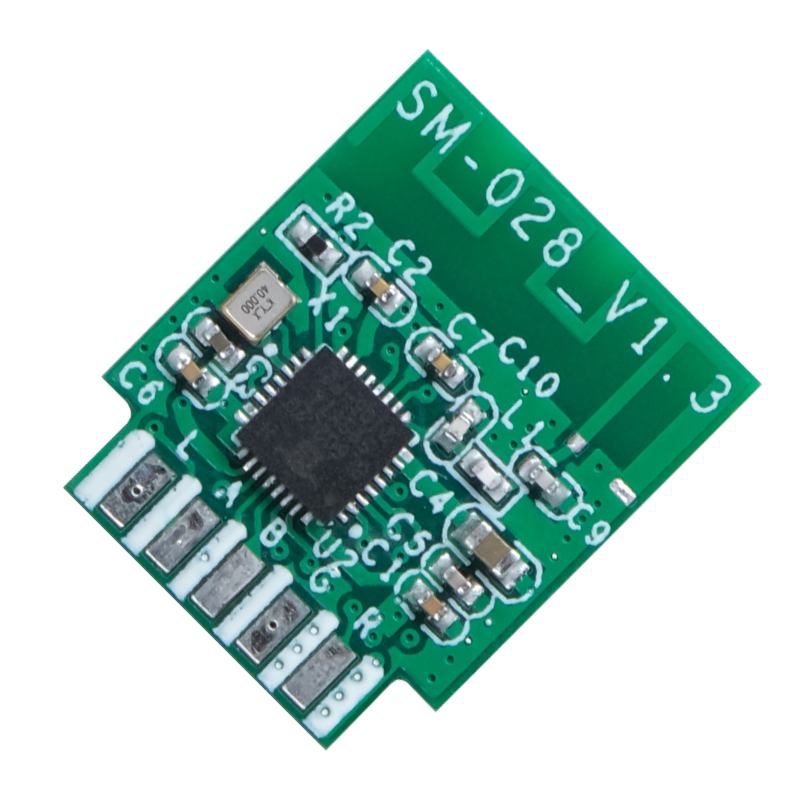The integration of Internet of Things (IoT) technology in healthcare has revolutionized the industry, offering advanced solutions for patient care, operational efficiency, and medical research. Advanced IoT modules are at the forefront of this transformation, providing the backbone for smart healthcare systems that enhance diagnostics, treatment, and patient monitoring.

Understanding IoT Modules in Healthcare
IoT modules are compact devices equipped with sensors, communication interfaces, and data processing capabilities. In healthcare, these modules connect medical devices, wearables, and hospital systems to collect, analyze, and transmit data. This connectivity allows for real-time monitoring, remote diagnostics, and improved patient outcomes.
Key Benefits of Advanced IoT Modules in Healthcare
Remote Patient Monitoring: IoT modules enable continuous monitoring of patients' vital signs, such as heart rate, blood pressure, and glucose levels. Data is transmitted to healthcare providers in real-time, allowing for timely interventions and reducing the need for frequent hospital visits.
Enhanced Diagnostics: By integrating IoT modules with diagnostic equipment, healthcare professionals can receive precise and immediate data. This improves the accuracy of diagnoses and speeds up the treatment process, enhancing patient care.
Operational Efficiency: IoT modules streamline hospital operations by managing inventory, tracking medical equipment, and optimizing workflow. Automated data collection and processing reduce administrative burdens and improve the overall efficiency of healthcare facilities.
Patient Engagement: Wearable devices equipped with IoT modules encourage patients to engage with their health by tracking physical activity, sleep patterns, and other health metrics. This data can be shared with healthcare providers to tailor personalized treatment plans.
Applications of IoT Modules in Healthcare
Telemedicine: IoT modules facilitate virtual consultations by connecting patients with healthcare providers via video calls and transmitting real-time health data. This is particularly beneficial for patients in remote areas or those with mobility issues.
Smart Hospitals: In smart hospital environments, IoT modules integrate various systems such as electronic health records (EHRs), patient monitoring devices, and hospital management software. This integration enhances communication, reduces errors, and improves patient care.
Chronic Disease Management: For patients with chronic conditions like diabetes or hypertension, IoT modules enable continuous monitoring and data sharing with healthcare providers. This allows for proactive management and timely adjustments to treatment plans.
Emergency Response: IoT-enabled devices can alert healthcare providers in case of emergencies, such as falls or cardiac events. This immediate notification ensures quick response times, potentially saving lives.
Challenges and Considerations
While the benefits of IoT modules in healthcare are substantial, their implementation comes with challenges. Data security and privacy are paramount concerns, as healthcare data is highly sensitive. Ensuring robust encryption and secure data transmission is essential to protect patient information. Additionally, integrating IoT technology with existing healthcare systems requires significant investment and expertise.
Future Prospects
The future of IoT in healthcare looks promising, with advancements in artificial intelligence (AI) and machine learning further enhancing the capabilities of IoT modules. Predictive analytics, powered by AI, can anticipate health issues before they become critical, enabling preventive care. Moreover, the development of 5G networks will facilitate faster and more reliable data transmission, further boosting the efficiency of IoT-enabled healthcare systems.
Conclusion
Advanced IoT modules are transforming healthcare by enhancing patient monitoring, diagnostics, and operational efficiency. Their ability to provide real-time data and connectivity is revolutionizing the way healthcare is delivered, making it more personalized, efficient, and proactive. As technology continues to evolve, the integration of IoT modules in healthcare will undoubtedly play a crucial role in improving patient outcomes and advancing the industry as a whole. Embracing these innovations is essential for healthcare providers looking to stay at the forefront of medical advancements and deliver the highest quality of care.
 Trolink Joint With Tuya to Make Iot Benefit Every Family
Trolink Joint With Tuya to Make Iot Benefit Every Family
 5 Key Indicators for WiFi Module Selection You Have to Know !
5 Key Indicators for WiFi Module Selection You Have to Know !
 IOT module is the brain of smart products
IOT module is the brain of smart products
 What is the signal coverage range of the WiFi module chip?
What is the signal coverage range of the WiFi module chip?